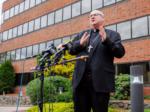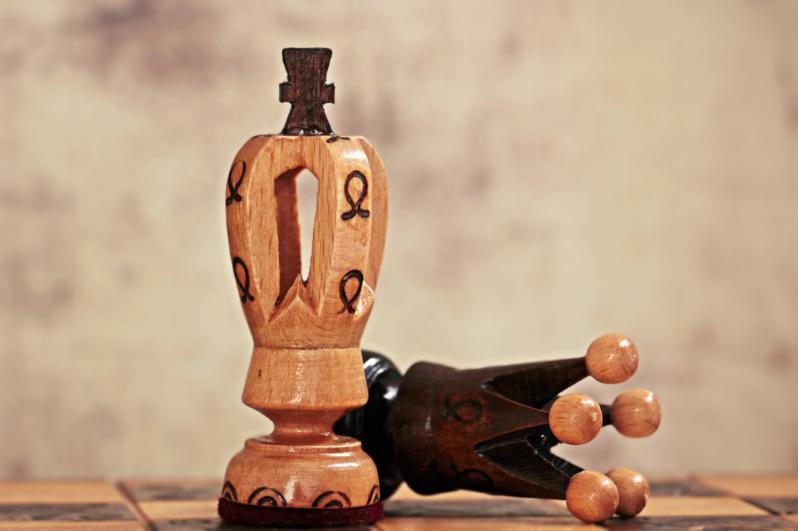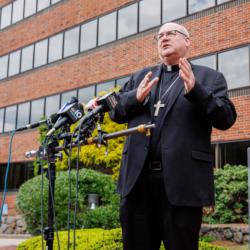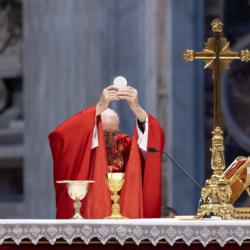Left to our own devices
War in Ukraine and now Israel. Economic stress. Joblessness. Political uncertainty. Family instability. Homelessness. Rising crime and declining education levels. Unprecedented rates of anxiety and depression. Suppression of free speech and the free exercise of religion. There's no doubt the world we live in is a mess. We might well ask, "How in the world did we get here?"
But how we answer that question is likely to reveal something deeper about us. Here's what I mean: If we tally the deterioration of our society in other people's columns, it's likely an attempt to evade any responsibility for the state of things ourselves. It's an us-vs-them proposition. "They" are the reason things are so bad, and "they" have to be stopped. We're the unsung heroes, the good guys that somehow didn't win.
If we say that things aren't actually much worse than they've been -- but just more visibly so -- we maintain some sense of reassurance. We can applaud ourselves for being honest, if not for being good. We can do our best to minimize the impact we feel and hope that our neighbors do the same. And if they don't, we can push them to the peripheries of our social circle, or beyond it.
If we exaggerate how bad things are and question anyone's ability to do anything about them, we can justify doing nothing. We don't have to put ourselves out there and risk anything for anyone else if we manage to convince ourselves that nothing will come of it. Instead, we can stock up for the siege and hunker down.
But if we allow that question, "How did we get here?" to bounce around our own hearts for a while, we might have the courage to answer it a bit differently. We might come to the realization that what we have is what we get when we're left to our own devices. And that at some level, every one of us has chosen to opt out of what God has asked of us. We're afraid to "get involved" in something that isn't "our business." So instead of bringing the light we have received to others, we bury our fathers, inspect our fields, and attend to our own families.
While those things aren't bad in and of themselves, they serve as ready-made excuses for not engaging the larger world around us. If we don't want to be tainted by the world, we refuse to live in the world. We leave everyone to their own devices, despite the fact that we all know where that leads.
"Salus animarum suprema lex esto" that is, "the salvation of souls must be the supreme law" of the church. When we see those around us heading for hell with unbridled exuberance, we must do what we can to stop them. When those close to us make choices we suspect may harm or even destroy them, we should quietly warn them. Intercessory prayer certainly has a role here. But it ought not be the only thing we Christians do when someone is two steps away from throwing himself over a cliff.
And yet, we must keep something at the forefront of our minds. Most of us aren't much better than the people who are messing things up, if we are at all. Things might be different if we were in charge, but perhaps no better. We flatter ourselves if we think otherwise.
We are all sinners. And we must act as if we are well-aware of that fact. We can help others to find salvation only when we are focused on finding it for ourselves. It's easy to say that the church is a hospital for sinners. But I don't know anyone who wants to go to a hospital where no one gets well. We must be made new.
The answer is total surrender, total reliance on God. We cannot solve anything by our own human efforts. Our own devices have brought us to where we are, and they cannot save us. Only the sanctifying power of the Holy Spirit can, and he does that one soul at a time.
- Jaymie Stuart Wolfe is a Catholic convert, wife, and mother of eight. Inspired by the spirituality of St. Francis de Sales, she is an author, speaker, and musician, and provides freelance editorial services to numerous publishers and authors as the principal of One More Basket. Find Jaymie on Facebook or follow her on Twitter @YouFeedThem.



















